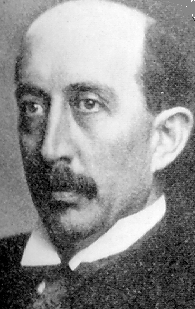Edmund Richardson was, along with Clarence Darrow, one of the two lead defense attorneys in the Haywood trial. Both lawyers had oversized egos and neither adjusted well to the unaccustomed position of sharing the spotlight. As a reporter for the Denver Post observed, "Two stars of the same magnitude cannot occupy the same orbit." After the trial, Darrow was to refer to Richardson as "that ass, my former associate," and describe him to a reporter as "very hard to get along with, very egotistical, arrogant, and exceedingly jealous." At one time during the trial, a dispute between the two caused Darrow to threaten to quit the defense team.
Richardson's Denver law firm had for years been the principal source of legal support for the Western Federation of Miners. Because of this long relationship, Richardson did not hesitate to catch a night train for Idaho on the day of the arrest of the three inner circle members.
Richardson's style in the courtroom differed markedly from the more folksy style of Darrow's. J. Anthony Lukas described Richardson, with his impeccable tailoring, "coiled energy," "biting wit and sarcasm," to be "the very picture of a big city barrister." During the hot days of the trial, Richardson remained in a three-piece suit, wiping his bald head with a large, floppy hankerchief. Whereas Darrow preferred to position himself as close as possible to the jury, Richardson stayed near the defense table "as if the jury were schoolchildren and he the master."
Richardson's biggest failure in the trial was his 26-hour cross-examination of Harry Orchard, which failed to seriously undermine the star witness's testimony. His best moments came during his "mesmerizing" and eloquent nine-hour summation. Richardson asked the jury:
I say this man [Orchard] is a cheap and a tawdry and a tinsel hero, seated on this witness stand like a king upon his throne...under a promise as plain as noonday that his worthless head and carcass shall be saved if only there is can be secured a condemnation of the officers of the Western Federation of Miners. Which would you rather believe, this man on the stand wearing his cheap bravado and putting obloquy upon those who are innocent, or this husband and this father [pointing to Haywood], an exemplary citizen all of his life, nursing tenderly and caring properly for this crippled woman [Haywood's mother] who now sits and has for long year sat by his side?

